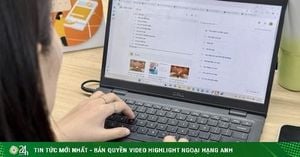Italy's vibrant cultural scene is set to light up with several significant book presentations and events centered around inclusivity, archaeology, and governance. On February 8, 2025, Genoa will host the presentation of works focusing on urban atmospheres, cultural rights, and archaeological discoveries resulting from dedicated research.
One such highlight is the anthology discussing urban atmospheres, curated by Agostino Petrillo. The book presents insights on how cities create unique atmospheres fostering social behaviors and experiences. Petrillo's presentation will take place at Via di Canneto il Curto, 12, starting at 17:00, emphasizing the philosophical and sociological significance of urban experiences within physical spaces.
On the same date, the town of Cirella will welcome the presentation of "Cerillae. Una necropoli di età medio imperiale nell’Alto Tirreno cosentino" by Viviana Spinella. Scheduled for 17:00 at the Delegazione municipale di Cirella, this event promises to shed light on ancient burial sites uncovered during the construction of the Strada Statale 18. Spinella, who is affiliated with the University of Trento, will discuss her comprehensive analysis of the necropolis, illuminating its historical and archaeological importance to the region.
Further enriching the discourse around cultural access, Mario Chiara Ciaccheri’s book, which has gained traction among cultural practitioners, highlights the social injustices inherent to accessibility limitations within museums. A belief echoed by Ciaccheri states: "Le barriere sono ingiustizie sociali diffuse," emphasizing the need for inclusive cultural spaces. Her work is not just theoretical but presents practical tools for cultural institutions aiming to dismantle barriers, both physical and perceptual.
According to Ciaccheri, "I musei sono passati dall’essere per qualcosa, all’essere per qualcuno," depicting a shift toward inclusivity and community engagement within museum operations. This approach reflects the growing consensus among cultural institutions to adopt strategies making museums genuinely accessible and representative of diverse populations.
These discussions underline the significance of participatory projects, which are integral to Ciaccheri’s perspective, as she advocates for museums to become vibrant centers of interaction rather than mere repositories of artifacts. By reinforcing the importance of accessibility as not just physical but also cultural, she posits: "Un museo accessibile non può vivere in una città inaccessibile." This assertion connects the fabric of cultural institutions to the broader community's welfare and engagement.
Meanwhile, another significant event will occur on February 7, 2025, in Vicenza, where discussions surrounding mountain governance will take center stage. This initiative, organized by the Fondazione di Storia Ets, will feature Stefano Piazza’s book, "Prove di prossimità. Esplorazioni sulla governabilità in quota nel tempo della post-globalizzazione," focusing on the challenges and opportunities faced by mountainous regions experiencing varying degrees of tourism and abandonment. A melting pot of ideas, this event intends to address pressing contemporary issues concerning environmental stewardship and community engagement.
Stefano Piazza, who is set to speak at Palazzo Giustiniani Baggio, aims to showcase how practical citizenship approaches can reshape governance structures, encouraging diverse community participation. This interdisciplinary examination of mountain territories will be enriched through expert panel discussions, contributing to the larger discourse on socio-environmental governance.
The enthralling combination of book presentations and community gatherings invites residents and cultural enthusiasts alike to participate and engage with creative works reshaping Italy's cultural narrative. Local authorities and cultural associations, such as the Associazione Culturale “Cerillae,” are at the forefront, advocating for the appreciation of heritage and historical narratives, underscoring the importance of preserving the shared identity of regions like Cirella.
Together, these events will underline the relevance of literature and dialogue to promote social equity, cultural heritage, and community resilience, inviting all to partake.



